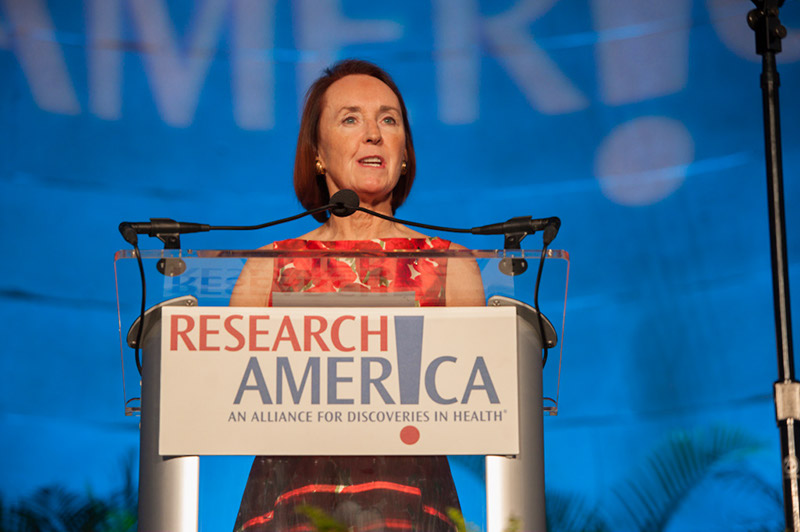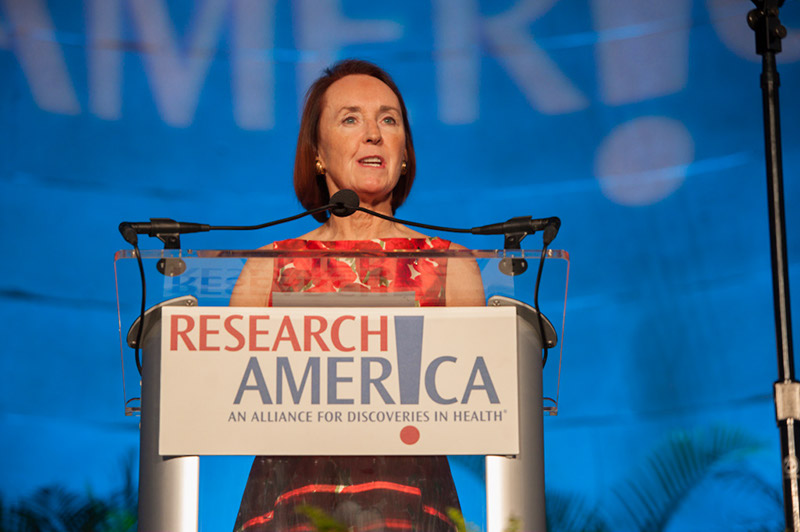High stakes for research and public health

 Dear Research Advocate:
Dear Research Advocate:
The Senate approved a four-bill minibus package including appropriations under the jurisdiction of the Interior-Environment, Financial Services, Agriculture (which includes FDA) and Transportation-HUD Subcommittees yesterday, and will now likely take up a combined Labor-H/Defense appropriations bill (inclusive of NIH, CDC, AHRQ, the Department of Defense CDMRP and other important research funding). Research!America sent a letter to Appropriations leaders today reinforcing their commendable efforts to wrap up FY19 appropriations before the 9/30 deadline.
The stakes here are high: the alternative scenarios — either flat funding under a continuing resolution or a government shutdown — would shortchange imperatives like medical progress and public health readiness. Please join us in encouraging “regular order” by tweeting the Chairs and Ranking Members of the House and Senate Appropriations Committees (find their Twitter handles here).
Speaking of imperatives, the FDA is ready to implement a five-year plan that builds on the agency’s commitment to help combat antimicrobial resistance. AMR is in fact one of the urgent issues panelists will explore at our National Health Research Forum on September 6. While we’ve reached capacity for the event, we will gladly add you to the waiting list. With thanks to media sponsor the National Journal, the program will be livestreamed — mark your calendars! (For more on AMR, check out our fact sheet.)
Yesterday, during our alliance member call, Sue Peschin, President and CEO of the Alliance for Aging Research, discussed the reauthorization of the Patient-Centered Outcomes Research Institute (PCORI). Advocates will host a Hill Day on Wednesday, October 31 to raise awareness of the critically important research PCORI funds. To learn more about the Hill Day, contact Sara van Geertruyden at [email protected]. To learn about joining the Friends of PCORI effort, contact Sue Peschin at [email protected].
Also yesterday, President Trump nominated Kelvin Droegemeier, PhD, to be the next director of the White House Office of Science and Technology Policy (OSTP). Dr. Droegemeier, a meteorologist, is the former vice-chair of the governing board of NSF, having served terms under both President George W. Bush and Barack Obama. He is widely praised for his service to science in the public interest. We are reaching out to Senators on both sides of the aisle in support of his confirmation.
Tomorrow is the last day to submit nominations for the 2019 Herbert Pardes Family Award for National Leadership in Advocacy for Research. The award, which recognizes commitment and leadership in health and research-focused public engagement and advocacy, will be announced at our Advocacy Awards Dinner on March 13, 2019.
The deadline for our young scientist civic engagement micro-grant program is quickly approaching. Interested groups have until August 10th to submit proposals. We’re seeing some terrific ideas come in. And — it’s not too late to become a funding partner for this nonpartisan civic engagement effort…more partners; more microgrants! Contact Donna McKelvey for details at [email protected].
Finally, I reported last week that the World Health Organization had declared the most recent Ebola outbreak in the Democratic Republic of the Congo (DRC) contained. It now develops that the DRC is facing a new outbreak of the virus in North Kivu province. Public health officials responded quickly and aggressively to contain the last outbreak — which included the use of a new Ebola vaccine — and are on the ground now to take appropriate action in the face of this new threat. It’s a case in point illustrating why we can’t take public health for granted.
Sincerely,
Mary Woolley




